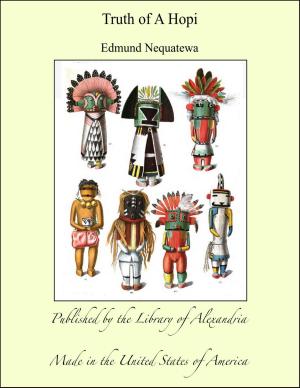| Author: | Unknown | ISBN: | 9781465580375 |
| Publisher: | Library of Alexandria | Publication: | March 8, 2015 |
| Imprint: | Language: | English |
| Author: | Unknown |
| ISBN: | 9781465580375 |
| Publisher: | Library of Alexandria |
| Publication: | March 8, 2015 |
| Imprint: | |
| Language: | English |
The Dialogues of the Buddha, constituting, in the Pâli ext, the Dîgha and Magghima Nikâyas, contain a full exposition of what the early Buddhists considered the teaching of the Buddha to have been. Incidentally they contain a large number of references to the social, political, and religious condition of India at the time when they were put together. We do not know for certain what that time exactly was. But every day is adding to the number of facts on which an approximate estimate of the date may be based. And the ascertained facts are already sufficient to give us a fair working hypothesis. In the first place the numerous details and comparative tables given in the Introduction to my translation of the Milinda show without a doubt that practically the whole of the Pâli Pitakas were known, and regarded as final authority, at the time and place when that work was composed. The geographical details given on pp. xliii, xliv tend to show that the work was composed in the extreme North-West of India. There are two Chinese works, translations of Indian books taken to China from the North of India, which contain, in different recensions, the introduction and the opening chapters of the Milinda{1}, For the reasons adduced (loco citato) it is evident that the work must have been composed at or about the time of the Christian era. Whether (as M. Sylvain Levy thinks) it is an enlarged work built up on the foundation of the Indian original of the Chinese books; or whether (as I am inclined to think) that original is derived from our Milinda, there is still one conclusion that must be drawn--the Nikâyas, nearly if not quite as we now ha ve them in the Pâli, were known at a very early date in the North of India.
The Dialogues of the Buddha, constituting, in the Pâli ext, the Dîgha and Magghima Nikâyas, contain a full exposition of what the early Buddhists considered the teaching of the Buddha to have been. Incidentally they contain a large number of references to the social, political, and religious condition of India at the time when they were put together. We do not know for certain what that time exactly was. But every day is adding to the number of facts on which an approximate estimate of the date may be based. And the ascertained facts are already sufficient to give us a fair working hypothesis. In the first place the numerous details and comparative tables given in the Introduction to my translation of the Milinda show without a doubt that practically the whole of the Pâli Pitakas were known, and regarded as final authority, at the time and place when that work was composed. The geographical details given on pp. xliii, xliv tend to show that the work was composed in the extreme North-West of India. There are two Chinese works, translations of Indian books taken to China from the North of India, which contain, in different recensions, the introduction and the opening chapters of the Milinda{1}, For the reasons adduced (loco citato) it is evident that the work must have been composed at or about the time of the Christian era. Whether (as M. Sylvain Levy thinks) it is an enlarged work built up on the foundation of the Indian original of the Chinese books; or whether (as I am inclined to think) that original is derived from our Milinda, there is still one conclusion that must be drawn--the Nikâyas, nearly if not quite as we now ha ve them in the Pâli, were known at a very early date in the North of India.















